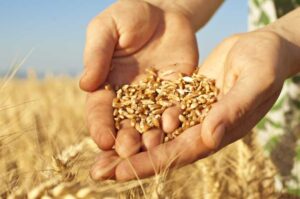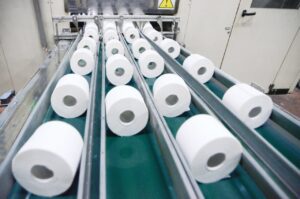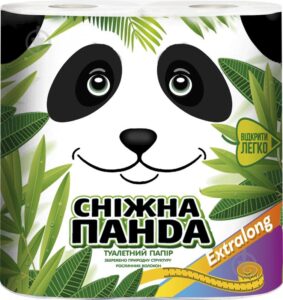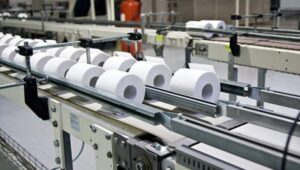
Beer production in Ukraine in January-November 2024 reached 129.8 million dal, up 4.9% compared to the same period in 2023, according to the website of the industry organization of brewers Ukrpyvo.
“The expert estimate of beer production in Ukraine (except for non-alcoholic beer with an alcohol content of up to 0.5 vol%) for 11 months of the year is 129.8 million dal, which is 104.9% compared to the same period in 2023. At the same time, this figure is only 82.5% of the production volumes for 11 months of 2021,” the statement said.
As reported, beer production in Ukraine in 2023 increased by 7.8% compared to 2022. At the same time, in 2022, it fell by 27.9% compared to 2021 – to 122.8 million dal.

Global cereal production in 2024 will decline by about 0.6% from the previous year to 2,841 million tons, a downward revision since October, but still the second largest production on record, according to the monthly review of the UN Food and Agriculture Organization (FAO).
According to the report, world wheat production in 2024 will be at the level of 2023 and will amount to 789 million tons, while corn production will decline by 1.9% from the previous year to 1,271 million tons due to lower than expected yields in the European Union and the United States.
FAO’s forecast for global rice production in 2024-2025 increased by 0.8% to a record high of 538.8 million tons.
Softer wheat prices in 2025 may prevent the expansion of the area under winter wheat during the sowing campaign, which is being conducted in the Northern hemisphere. Below-normal precipitation in key wheat-growing regions in Russia resulted in low soil moisture levels, which affected planting. In contrast, favorable soil moisture and government support policies, as well as favorable prices, should encourage planting expansion in China and India.
Early signs point to a reduction in corn plantings in Argentina due to dry conditions and the risk of dwarfing disease transmitted by cicadas. In Brazil, the area under corn in 2025 will remain at last year’s level. In South Africa, white corn acreage is expected to increase. This is due to record prices and will compensate for the reduction in the area under yellow corn.
Global grain consumption is projected to increase by 0.6% to 2,859 million tons in the 2024/25 marketing year (MY, July-2024-June-2025), driven by projected growth in rice and wheat consumption as food.
According to FAO’s November forecast, global grain stocks will decrease by 0.7% from their initial level, resulting in a global grain stocks-to-consumption ratio of 30.1% in 2024/25 MY, which is lower than 30.8% in the previous year, but still indicates a “comfortable supply level” on a global scale.
International grain trade for 2024/25 MY is forecast at 484 mln tonnes, which is 4.6% less than in the previous year.
“Global wheat and corn trade volumes are expected to decline, while rice trade is expected to increase,” the report says.

Biosphere Corporation, one of the market leaders in the production and distribution of household goods, plans to open a production facility in Uzbekistan next year to produce recycled garbage bags rather than virgin polymers and actively promote its products in this and neighboring Central Asian markets, according to Andriy Zdesenko, the corporation’s founder and CEO.
“This will load our Polygreen plant in Fastiv, which currently has a 20% capacity reserve. And it will allow us to build another plant in Ukraine that will produce pellets and send them to Uzbekistan to produce garbage bags, which we will then supply to neighboring countries,” he said in an interview with Interfax-Ukraine.
“And then sponge sponges, foil-film, slider bags – the whole range that is necessary for development,” Zdesenko added.
He clarified that Uzbekistan has protected its market by banning the export of garbage bags of a certain thickness and thus stimulated the launch of domestic production. In addition, the cost of logistics to the region, for example, to Kazakhstan, has tripled due to the war, and delivery times have increased from three weeks to two months.
“Therefore, if we want to be in the market of Uzbekistan, where I think there will be 40 million people in five years, we need to produce there,” said the Biosphere CEO.
He also emphasized that there are about 100 million people around Uzbekistan, including Afghanistan, whose market is actively developing, and there are many trade hubs in the region where business is very active.
Biosphere Corporation has been operating in Ukraine for over 25 years. The product portfolio includes more than 1 thousand items under 16 own brands (Freken BOK, Faynyi Bonus, Vortex, Likit, Smile, Smile Baby, Superfresh, Bambik, Novita, Lady Cotton, Alufix, PRO service, GoWipes, Chysta Peremoha, Pany Blisk and PoketMon). The corporation is the official distributor of such international brands as TORK, Selpak and Fantom.
The corporation’s capacities in Ukraine are represented by three plants with a total production area of 35 thousand square meters in Dnipropetrovska, Kyivska and Khmelnytska regions, as well as logistics complexes with an area of 30 thousand square meters. Together with the French Groupe Lemoine, Biosphere also owns a plant in Estonia for the production of cotton products with an area of 8.5 thousand square meters.
At the end of 2023, the company opened a new FOOD business line with its own Cupsoul production, represented by such tea brands as Graff, Ritz Barton, and others.

In January-October 2024, Ruta, a major Ukrainian manufacturer of sanitary and hygienic paper products, whose management company is VGP JSC (Lutsk), produced products worth UAH 1 billion 434.6 million, up 6.6% compared to the same period in 2023.
According to Ukrpapir’s statistics provided to Interfax-Ukraine, the company has thus maintained a positive production trend over the past 10 months compared to the same period last year, which it reached in the first nine months of the year.
In physical terms, the company’s production of toilet paper in rolls, which slightly decreased, amounted to 110.73 million units, which remains the third best result in the industry after Kyiv Cardboard and Paper Mill (224.5 million units) and Kokhava Paper Mill (113.4 million units).
The company produces pulp-based sanitary and hygiene products from imported base paper.
VGP’s portfolio includes dry and wet wipes, toilet paper, paper handkerchiefs, and kitchen towels. The assortment includes more than 180 items.
As reported, in 2023, VGP JSC produced products worth UAH 1 billion 611 million, which is 64.8% more than in 2022.

Bloomi LLC (Odesa), a manufacturer of sanitary and hygienic paper products under the Snow Panda brand, produced products worth UAH 330.3 million in January-October, up 10.3% compared to the same period in 2023.
According to statistics provided by UkrPapir Association to Interfax-Ukraine, in physical terms, in particular, the production of toilet paper increased by 14.2% to 42.1 million rolls.
As reported, over the past 10 months, Ukraine’s major sanitary paper producers produced a total of 533.34 million rolls of paper, up 6.3% year-on-year.
Bloomi, which was registered in 2014, produces pulp-based sanitary products (toilet paper, napkins, towels) from imported base paper. The products are manufactured at the facilities of Omega Brokers PE, one of the leading Ukrainian manufacturers of detergents, disinfectants and sanitary products.
In 2023, the company almost doubled its production volume by 2022 to UAH 367.3 million.
The company is co-owned equally (25% each) by four Odesa-based entrepreneurs.

In January-October 2024, Kokhavyno Paper Mill (KPM, Lviv region), which produces sanitary paper products, increased its production by 78.3% year-on-year to UAH 1 billion 711.5 million, according to statistics from UkrPapir Association.
As reported, in the first nine months of the year, the mill’s production growth was 75.1% compared to the same period in 2023, and in the first eight months it was 67%.
According to the association’s statistics provided to Interfax-Ukraine, in physical terms, the production of the base paper for sanitary products at the factory increased by 39.5% to 48.2 thousand tons during this period.
The output of toilet paper in rolls amounted to 113.5 million units, having increased slightly in January-October 2023. KPF confidently ranks second in terms of its output after Kyiv CPP.
As reported, in October last year, Kokhava Pulp and Paper Mill put into operation a paper machine for the production of cellulose base paper (previously, it produced only waste paper). To organize such production in 2021, the mill attracted a EUR 13.8 million loan from the EBRD.
Kokhava Pulp and Paper Mill, which has been operating since 1939, produces base paper for sanitary and hygiene products, as well as toilet paper and paper towels. Before the new machine was put into operation, the mill had two paper machines with a total capacity of 40 thousand tons of base paper per year.
In 2023, the factory increased its production by 18% compared to 2022, to UAH 1 billion 151.2 million, and its net profit increased 2.7 times to UAH 137 million.